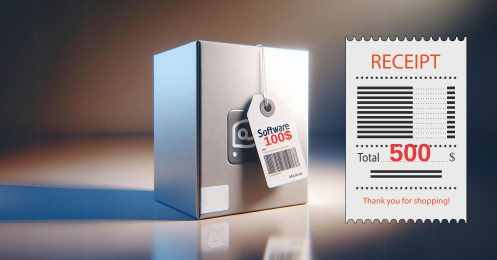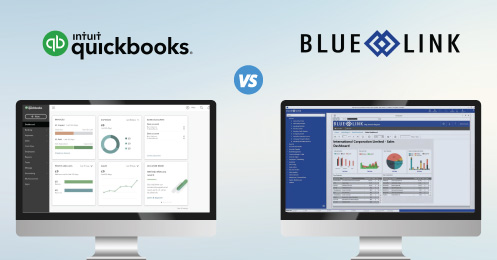In today’s fast-moving business world, succeeding in the child and baby items wholesale market takes more than just resilience—it requires a proactive approach to change. As consumer preferences, regulatory landscape, and technology evolve at breakneck speed, adaptability becomes the foundation for lasting growth. For distributors, embracing this change isn't just an option; it’s essential for thriving in a highly competitive field.
Transitioning beyond mere survival and staying ahead of industry trends helps you see what’s coming next. For example, the rise of online shopping and the increasing demand for eco-friendly products, along with ever-tightening safety regulations, offer opportunities for those ready to innovate. These aren't just trends; they are key drivers that can change how businesses operate. By aligning with these changes, companies can not only improve their product offerings but also make their operations more efficient to meet and exceed consumer expectations.
In this demanding market, keeping up with trends isn’t just recommended—it’s necessary. Failure to engage with these dynamics could lead to falling behind or, even worse, becoming irrelevant. This article explores the important trends reshaping the baby and children's products industry and shows how using modern technology, like ERP systems, can help distributors find new paths for gaining sustainable growth and a competitive edge.
Diverse Product Categories, Common Trends
In the baby and children's market, the array of products available is as diverse as the needs they fulfill. Everything from apparel and accessories to diapers and toys, the richness and variety in these categories highlight the industry's commitment to catering to every aspect of a child's life.
Mega-Trends in Baby and Children Products
Our analysis indicates that general trends among all children and baby products can be categorized into two groups:
- Consumer-Driven trends
- Industry-Driven Trends
Below you can find trends in both categories and how technology, and more specifically ERP software helps baby items wholesale businesses or distributors of child and baby products adapt to the changing environment and stay ahead of the industry to capture business opportunities.
Consumer-Driven Trends
In the ever-evolving landscape of child and baby items wholesale, consumer behavior and expectations are constantly shifting. The key trends shaping this market are:
- The rise of sustainability and ethical consumption
- The digital shift and omnichannel shopping
- Personalization and Tailored Experiences
- Health and Wellness
- Convenience and Speed
1. The Ongoing Rise of Sustainability and Ethical Consumption
Organic and Eco-Friendly Products
Consumers are increasingly prioritizing sustainability and ethical production in their purchasing decisions, especially when it comes to children. This trend is particularly evident in the demand for organic food and eco-friendly clothing materials. Organic cotton and bamboo fabrics (which require less water to grow and are naturally antibacterial) are gaining popularity due to their gentle impact on sensitive skin and environmental benefits.
Sustainable Packaging
Parents are also looking for products with sustainable packaging. Brands are responding with recyclable or biodegradable packaging options, reducing their environmental footprint.
2. The Digital Shift and Omnichannel Shopping
Seamless Shopping Experiences
The integration of digital and physical shopping experiences is becoming more prevalent due to its flexibility and convenience. Parents expect seamless transitions between online and offline shopping, utilizing multiple channels to find the best products for their children.
Advanced Technology in Shopping
The adoption of technologies like augmented reality (AR) and virtual reality (VR) is enhancing the shopping experience. These technologies allow parents to visualize how products might look or function, such as using AR to see how a stroller fits in their car trunk before purchasing.
3. Personalization and Tailored Experiences
Customized Products
There is a growing demand for personalized shopping experiences in the baby and children's market. Parents appreciate tailored recommendations and customized products, such as personalized baby clothes or nursery items. This trend extends to marketing messages, which are becoming more targeted and relevant to individual consumer preferences.
4. Health and Wellness Focus
Organic and Natural Baby Foods
Health and wellness are at the forefront of consumer priorities. There is a significant rise in demand for organic and natural foods, free from pesticides and artificial additives. Parents are increasingly interested in products that contain functional ingredients, such as prebiotics and DHA (Docosahexaenoic acid) which support infant health and development.
5. Convenience and Speed
Ready-to-Eat Options
Busy parents are driving the demand for convenient, ready-to-eat baby food options. Products like pouches, jars, and single-serve containers are becoming more popular, offering quick and easy meal solutions for parents on the go.
Fast Delivery and Easy Returns
Convenience is not limited to the products themselves. Parents expect fast delivery options, such as same-day shipping, and hassle-free shopping experiences, including easy return policies. These services are becoming standard expectations in the baby and children's market.
Industry and Regulatory-Related Trends
As the landscape for children's and baby products evolves, industry leaders are increasingly focused on adhering to stringent regulations and embracing emerging trends. These developments aim to enhance safety, transparency, and sustainability. This article explores the key industry trends and new regulations shaping the market, providing insights into how businesses in child and baby items wholesale can adapt and thrive.
- Regulatory Compliance
- Traceability
- Transparency
1. Regulatory Compliance in Children's Products
Understanding Health and Safety Standards
The safety of children's products is paramount, with regulations ensuring that items meet specific health and material standards. For instance, in the United States, the Consumer Product Safety Commission (CPSC) mandates guidelines on clothing safety, including restrictions on lead, phthalates, and flammability. Compliance with these standards is crucial for brands looking to maintain consumer trust and avoid legal ramifications.
Working with reputable suppliers who can provide certificates of compliance is vital. Conducting third-party material testing ensures fabrics are free from harmful chemicals and allergens. Certifications like OEKO-TEX offer added assurance, indicating that textiles have been tested for safety.
2. The Role of Traceability in Product Safety
Tracking Labels and Product Registration
Traceability regulations, such as the Consumer Product Safety Improvement Act (CPSIA), require tracking labels on children's products. These labels, which include the manufacturer’s details and production information, help quickly address safety issues. Additionally, durable infant products often require registration forms to facilitate direct communication with consumers during recalls.
3. Demand for Transparency
Food Traceability and Ethical Sourcing
In response to growing consumer demand and the likelihood of increasing regulatory requirements, the food industry is moving toward greater transparency and ethical sourcing. While nutritional labeling is already mandatory in Canada and the US, manufacturers are taking it a step further by prioritizing clean, recognizable ingredients and ensuring that these ingredients are responsibly sourced. With potential regulations on the horizon for child and baby items wholesale, particularly around transparency and sourcing, the rise of allergy-friendly and ethically produced baby foods is shaping the future of the industry.
Technology Keeps Baby & Children Items Wholesalers Ahead of Trends
As wholesalers in the baby and children’s products market face a rapidly evolving landscape, adopting robust technologies is essential to keep up with these changes. Enterprise Resource Planning (ERP) has all-in-one functionality to help manage these trends today and beyond as they continue to evolve. The following sections break down key ERP features that wholesalers can leverage to address specific consumer and industry-driven trends.
- Lot and Batch Tracking
- Webservices Integration
- Contact Management
- Inventory Management
- Warehouse Management
- Reporting & Analytics
- Electronic Document Management Software
- Product Matrix
Lot and Batch Tracking
Lot and batch tracking in an ERP system is a vital feature for wholesale businesses, offering the ability to trace products throughout the supply chain, from the moment lots leave the production to the final product delivery. This capability ensures transparency and accountability for child and baby items wholesalers by monitoring inventory down to individual lots or batches. Additionally, as health and wellness become more significant, the feature supports meeting regulatory requirements and ensuring ingredient safety by tracking expiry dates and facilitating faster inventory movement, aligning with the growing demand for organic and allergy-friendly products.
Webservices API (eCommerce Integration & EDI)
A Webservices API integration offers seamless integration between ERP systems and third-party applications, such as e-commerce platforms and EDI providers, ensuring two-way data synchronization for orders, inventory updates, and shipments. This integration is particularly crucial in the current digital shift, where omnichannel shopping experiences are essential. By syncing real-time inventory levels, orders, and shipping statuses across platforms like Shopify, WooCommerce, and Amazon, it provides accurate information to consumers and supports live shipment tracking through third-party carriers. In the fast-paced baby product market, where convenience and speed are critical, the Webservices API automates order processing from multiple channels, ensuring quick and accurate deliveries to meet the high expectations of busy parents.
Contact Manager
Contact management also known as Customer Relations Management (CRM) tools within an ERP system (or integrated with it) empowers wholesalers and distributors to effectively manage customer relationships by tracking interactions, sales history, and preferences, enabling businesses to provide personalized service and tailored marketing campaigns. In response to the increasing demand for personalized shopping experiences, these tools facilitate the customization of marketing messages and improve customer support by utilizing detailed customer interaction histories. Although a contact manager in an ERP serves as a basic CRM, more advanced CRM systems can be integrated for enhanced functionality.
Inventory Management
Inventory management features in an ERP system offer real-time visibility into stock levels, automate replenishment, and manage multi-location inventories, ensuring products are available when and where they are needed. This capability is vital in supporting sustainability and ethical consumption by reducing waste, avoiding overstock of short-shelf-life products, and aligning with eco-friendly practices. Additionally, in a market where convenience and speed are critical, especially for parents expecting quick deliveries, these features ensure product availability across multiple warehouses, facilitating efficient same-day or next-day shipping.
Warehouse Management
Warehouse management features in ERP systems enhance operational efficiency by optimizing the picking, packing, and shipping processes, reducing errors through tools like barcode scanning and warehouse transfer capabilities. These features are vital for supporting the demand for convenience and speed, as they streamline fulfillment processes, ensuring quick delivery of products to customers. Additionally, they facilitate digital shift and omnichannel shopping by managing multi-channel fulfillment, coordinating inventory, and ensuring smooth processing of both online and in-store orders.
How Kidcentral Leverages ERP in Child & Baby Items Wholesale
Since its establishment in 2001, Kidcentral Supply has become a leading wholesale distributor of baby and maternity products to Canadian retailers. A Blue Link ERP user for over a decade, Kidcentral has optimized its warehouse operations by consolidating the picking process, tracking lots more effectively, and enjoying flexible options with shipping couriers. In the following video, you can watch how Kidcentral utilizes Blue Link ERP in their order shipping operations:
Reporting & Analytics
ERP systems equip businesses with robust reporting and analytics tools that deliver real-time insights into various aspects of operations, including sales trends, inventory levels, and financial performance, enabling informed decision-making. These tools are essential for supporting sustainability and ethical consumption by monitoring eco-friendly product metrics and aligning with green goals. In the health and wellness sector, they track consumer behaviors, such as the rising demand for organic and allergy-friendly products, helping wholesalers tailor inventory and promotions. Additionally, analytics identify fulfillment bottlenecks, optimizing delivery times to meet the increasing consumer demand for speed and convenience.
Electronic Document Management Software
Electronic document management systems (EDMS) enhance business efficiency by providing a seamless way to store, organize, and retrieve documents, fostering a paperless environment. Integrated with ERP systems, EDMS allows for automatic indexing and streamlined document workflows. This functionality is vital for regulatory compliance and traceability, ensuring easy access to compliance documents like safety certificates during audits and inspections. Additionally, in the health and wellness sector, EDMS supports transparency and compliance by managing health certifications, thereby ensuring all product safety documentation is readily available and correctly indexed
Blue Link’s Featured Component: Product Matrix
Blue Link ERP is an all-in-one inventory management and accounting ERP system, designed for small and medium-size businesses, primarily wholesalers and distributors. We also work with companies that operate retail and e-commerce channels. Blue Link helps your business streamline and automate processes by providing inventory management, accounting, order entry and processing, warehouse management, reporting, eCommerce integration, contact management, and more.
The Product Matrix feature is instrumental in managing products with multiple variations such as size, color, or style. This capability enables baby items wholesalers to efficiently handle groups of related items, simplifying inventory creation and organization.
Choose the Right Software for Baby Items Wholesale Business
To streamline operations and capitalize on industry trends as a child and baby items wholesale business, choosing software with features that match your business needs and enough agility to cover your future needs is essential. By understanding different software tiers and avoiding common search pitfalls, you can compare vendors more effectively and find a solution that aligns with your unique requirements and budget.
Download FREE Wholesale and Distribution Guide to Buying Software
By leveraging ERP features like lot and batch tracking, CRM, and warehouse management, wholesalers in the baby and children’s products market can stay ahead of key trends such as sustainability, personalization, and regulatory compliance. Each feature provides a distinct advantage, allowing businesses to meet evolving consumer demands while maintaining efficient, transparent operations.












